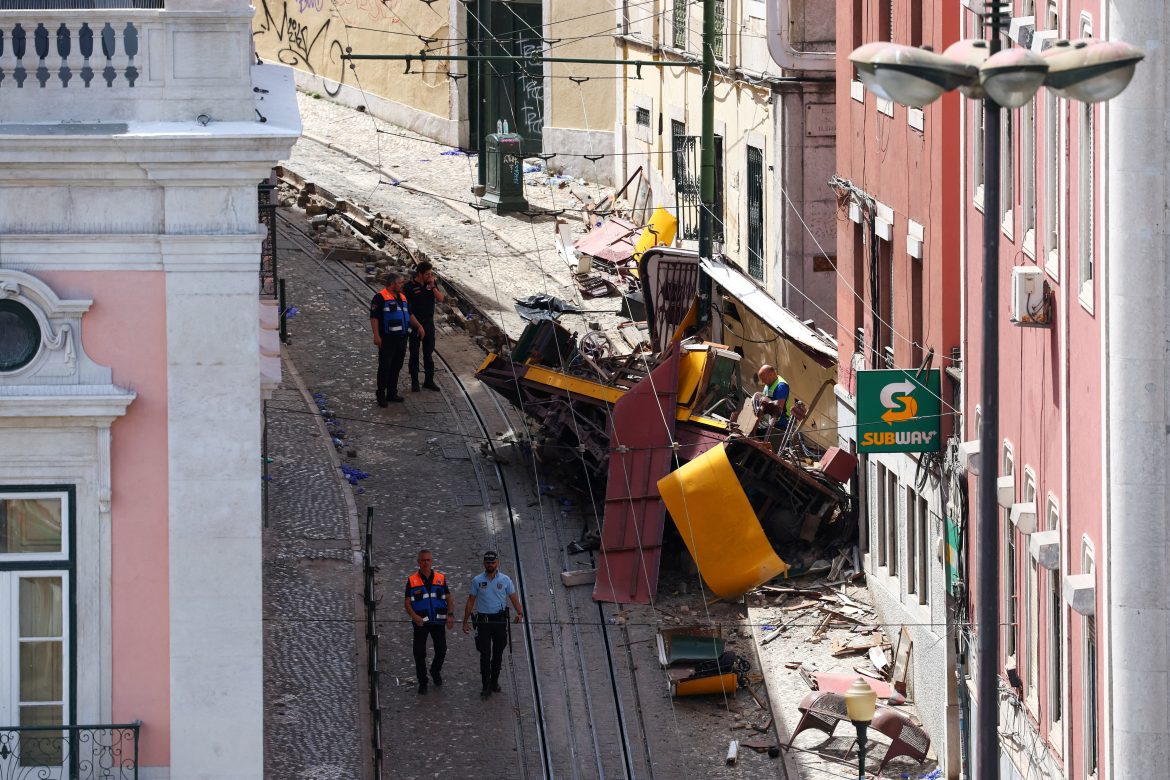
An initial report regarding the funicular accident in Lisbon last month, which resulted in 16 fatalities, has outlined numerous shortcomings.
The Air and Rail Accident Investigations Bureau of Portugal stated that the underground cable serving as a counterweight between two carriages was flawed and had never received certification for passenger use.
It indicated that the cable lacked technical appropriateness and was procured in 2022 by Carris, the entity operating Lisbon’s public transport, which has since announced the dismissal of its maintenance head for funiculars and trams.
The 140-year-old Glória funicular, a favorite among visitors, derailed and collided with a building on September 3.
Among those who lost their lives were 11 foreigners, including three British citizens, while another 20 individuals sustained injuries.
The preliminary findings, made public on Monday, noted that Carris engineers failed to provide oversight and that the cable was untested before installation.
The management and upkeep of the funicular by an outside company hired by Carris were also deemed ineffective—seemingly offering the Glória funicular a safety clearance on the morning of the accident, though it’s unclear if the inspection genuinely occurred that day.
The emergency braking system, which the operator attempted to activate upon cable failure, was not functioning correctly and had not been pre-tested, according to the report.
Nonetheless, the preliminary report stressed that the information collected thus far was “incomplete,” requiring additional tests and evaluations.
“The culpability or accountability of any involved organization or individual should not be assumed,” it stated.
Lisbon’s Mayor Carlos Moedas, re-elected on October 12 amidst claims of neglecting his supervisory role over the city’s funiculars, remarked to SIC television that the report “confirms that the tragic event… was caused by technical issues and not political factors.”
Carris released a statement emphasizing that “at this moment, it is not possible to determine whether the discrepancies in the cable’s usage are pertinent to the accident,” referencing a section of the report stating the same cables had operated on the Glória funicular for 601 days without issue.
As stated in the accident report: “Currently, it cannot be confirmed whether the deployment of this non-compliant cable played a role, or what role it played, in the failure… and it is certain from the investigation that additional factors must have been involved.”
The company emphasized that, while the cables were put into service under the current board, which took charge in May 2022, the procurement process occurred under the previous administration.
Among other safety suggestions, which will be elaborated upon further, are that Carris adopt a new safety management approach aligned with European best practices.
The comprehensive report is estimated to take around 11 months to finalize. If delays arise, a more detailed interim report will be provided instead.
In the meantime, all Lisbon cable cars have been instructed to cease operations until the necessary safety assessments are completed.
A review of all braking systems is required to ensure they can halt the carriages in the event of cable failure – a feature that was lacking in the Glória incident, the report advised.
It also recommended closing a gap that exempts Lisbon’s historic funiculars from the legal and supervisory scrutiny that applies to other cable-driven transport modes.

